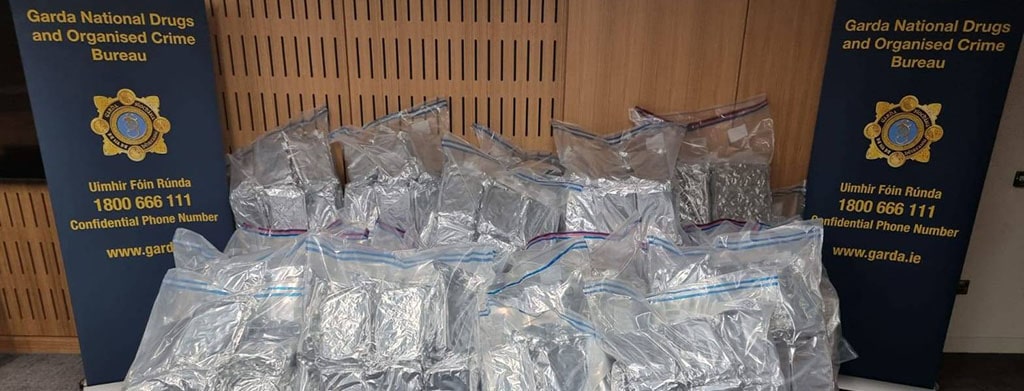 (Pic: RollingNews.ie)
(Pic: RollingNews.ie)
Boost garda intel capacity, inspectorate urges
A report by the Garda Síochána Inspectorate has made several recommendations aimed at improving the capability of the gardaí to combat transnational organised crime.
Among its recommendations is legislation to allow gardaí and other law-enforcement agencies to conduct ‘integrity testing’ of officials in key agencies.
The report also urges the Department of Justice introduce legislation – along with the authority and supervision required – that would allow covert intelligence sources to commit crime.
The report, entitled Transnational Organised Crime – A Review of the Structures, Strategies and Processes in the Garda Síochána, says the lack of such legislation “significantly limits the tactical options for targeting serious crime and offences committed by transnational organised crime groups”.
It adds that such a move would require “appropriate safeguards” to be put in place.
‘Integrity testing’
The report says describes corrupt officials as “one of the most serious enablers of organised crime”, adding that it is important to target not only those officials, but also organised crime gangs (OCGs) seeking to recruit a person in a position of authority.
Integrity testing consists of random checks on anyone within an agency, department, or organisation or intelligence-led targeted checks on a person.
“Usually, an integrity test involves putting an unsuspecting person in a potentially compromising position in order that their subsequent conduct can be assessed by a competent authority,” the report explains.
It adds that a garda member working undercover cannot currently engage in integrity testing by approaching a person and offering a bribe or other inducement, as to do so would involve the garda member committing a criminal offence.
While acknowledging concerns raised about such operations, the report recommends the introduction of legislation to enable law-enforcement agencies to conduct such testing.
National Crime Centre
The inspectorate also calls on An Garda Síochána to improve its system for reviewing “unexplained operational seizures or arrests that occur in the absence of formal intelligence or information provided by a registered source”.
The report calls on the Department of Justice to set up a National Crime Centre to facilitate collaboration between all agencies that can contribute to preventing transnational organised crime and disrupting and dismantling organised crime groups.
It adds that legislation should be in place to facilitate the sharing of information between these agencies.
Strategy
The inspectorate also calls on An Garda Síochána to develop, publish, and implement a strategy on transnational organised crime, pointing to the absence of such a document.
It also recommends that the force engage with the Department of Justice, the Police Service of Northern Ireland and the Northern Ireland Department of Justice to develop an all-island ‘strategic threat and risk assessment’ and strategy to tackle transnational organised crime.
The report calls for actions to improve the force’s use of technology, and the expansion of the garda liaison officer network to other geographical locations.
It also calls for action to address gaps in information sharing between gardaí and other agencies.
“The lack of formalised agreements with some key partners, such as Tusla, is a major barrier to effective inter-agency working,” it states, adding that draft agreements with other agencies have not yet been finalised.
Underlying issues
Chief Inspector Mark Toland said that the gardaí had had “considerable success” in targeting high-profile crime groups and seizing large volumes of drugs and other criminal assets.
“Despite garda successes in targeting high-profile crime groups, disruption to their operations is often temporary and does not address the underlying issues that affect the everyday lives of local people,” he stated.
“Preventing organised crime should be a priority, and this requires a strategic cross-government approach to enhance community safety and reduce recidivism through diversion and disengagement from organised crime,” Toland said.
Gazette Desk
Gazette.ie is the daily legal news site of the Law Society of Ireland